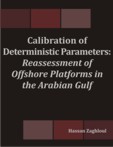Add abstract
Want to add your dissertation abstract to this database? It only takes a minute!
Search abstract
Search for abstracts by subject, author or institution
Want to add your dissertation abstract to this database? It only takes a minute!
Search for abstracts by subject, author or institution
Energy-Efficient Mobile Communication with Cached Signal Maps
by Rasmus Holm
| Institution: | Linköping University |
|---|---|
| Year: | 2016 |
| Keywords: | 3G; energy-estimation; signal maps; RSS; signal strength; energy consumption; mobile; Natural Sciences; Computer and Information Science; Computer Engineering; Naturvetenskap; Data- och informationsvetenskap; Datorteknik; Computer Engineering; Datat |
| Posted: | 02/05/2017 |
| Record ID: | 2133326 |
| Full text PDF: | http://urn.kb.se/resolve?urn=urn:nbn:se:liu:diva-124607 |
Data communication over cellular networks is expensive for the mobile device in terms of energy, especially when the received signal strength (RSS) is low. The mobile device needs to amplify its transmission power to compensate for noise leading to an increased energy consumption. This thesis focuses on developing a RSS map for the third generation cellular technology (3G) which can be stored locally at the mobile device, and can be used for avoiding expensive communication in low RSS areas. The proposed signal map is created by crowdsourced information collected from several mobile devices. An application is used to collect data in the mobile device of the user and the application periodically sends the information back to the server which computes the total signal map. The signal map is composed of three levels of information: RSS information, data rate tests and estimated energy levels. The energy level categorizes the energy consumption of an area into 'High', 'Medium' or 'Low' based on the RSS, data rate test information and an energy model developed from physical power measurements. The coarse categorization provides an estimation of the energy consumption at each location. It is evaluated by collecting data traces on a smartphone at different locations and comparing the measured energy consumption at each location to the energy level categories of the map. The RSS prediction is preliminarily evaluated by collecting new data along a path and comparing how well it correlates to the signal map. The evaluation in this thesis shows that with the current collected data there are not enough observations in the map to properly estimate the RSS. However, we believe that with more observations a more accurate evaluation could be done.
Want to add your dissertation abstract to this database? It only takes a minute!
Search for abstracts by subject, author or institution


|
Predicting the Admission Decision of a Participant...
|

|
Development of New Models Using Machine Learning M...
|

|
The Adaptation Process of a Resettled Community to...
A Study of the Nubian Experience in Egypt
|

|
Development of an Artificial Intelligence System f...
|

|
Theoretical and Experimental Analysis of Dissipati...
|

|
Optical Fiber Sensors for Residential Environments
|

|
Calibration of Deterministic Parameters
Reassessment of Offshore Platforms in the Arabian ...
|

|
How Passion Relates to Performance
A Study of Consultant Civil Engineers
|